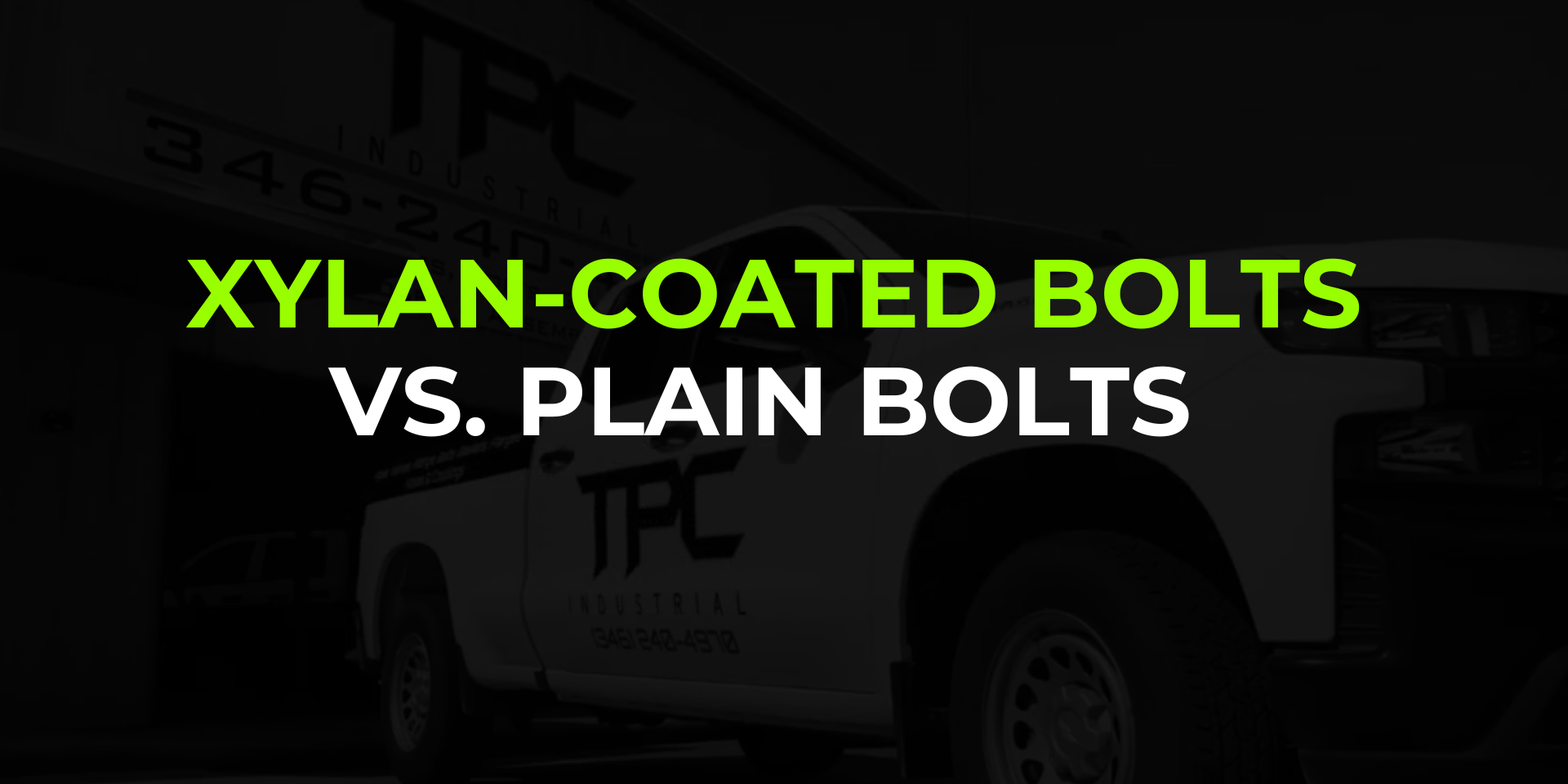Importance Of Xylan-Coated Bolts
In the world of industrial hardware, the choice between Xylan (Xylan 1424) coated bolts and plain bolts can significantly impact the longevity, safety, and efficiency of various applications.
We know it can get confusing with so many different specs in PVF to shed light on the distinctive features of Xylan coated bolts, their advantages, the specific applications where they are most beneficial, and the potential drawbacks. Additionally, we’ll delve into the consequences of using plain bolts in scenarios where Xylan-coated ones would be more appropriate, highlighting the risks and inefficiencies that may arise.
What is Xylan?
Xylan 1424 is a brand name for a range of fluoropolymer coatings manufactured by PPG Industries. These coatings are made from a combination of high-performance resins and fluoropolymers, including PTFE (polytetrafluoroethylene), which is perhaps the most well-known fluoropolymer due to its association with the brand Teflon.
Xylan coatings are designed to provide a slick, non-stick surface with exceptional resistance to wear, corrosion, and extreme temperatures. The versatility of Xylan allows it to be used in a wide range of colors and formulations, tailored to specific application requirements, including adherence to metal, plastic, ceramic, and even wood.
Why Xylan-Coated Bolts Are Important
Xylan-coated bolts are pivotal in applications that demand high resistance to corrosion, reduced friction, and durability in extreme environments. The unique properties of Xylan coatings ensure that bolts can withstand harsh chemicals, salty sea air, and high-pressure conditions without deteriorating. This makes them especially valuable in industries such as:
- Oil and Gas: Where exposure to corrosive substances and extreme pressures is common.
- Automotive: For parts that require high durability and resistance to harsh conditions.
- Marine: Where saltwater corrosion is a significant concern.
- Aerospace: Where extreme temperatures and the need for lightweight, durable components converge.
The lubricity of Xylan coatings also means that bolts can be tightened and loosened more easily, reducing the risk of galling (seizing up of threads due to friction and pressure) and facilitating maintenance operations.
Advantages of Xylan Coated Bolts
- Corrosion Resistance: Xylan’s exceptional ability to withstand corrosive environments protects the bolt and the integrity of the assembly, extending the lifespan of both.
- Reduced Friction: The low coefficient of friction reduces the torque required for tightening, thus minimizing the risk of damaging the bolt or the structure it secures.
- Temperature Resistance: Xylan coatings can withstand temperatures from -250°F to +500°F, making them suitable for extreme conditions.
- Chemical Resistance: These bolts can resist acids, alkalis, and solvents, ensuring their performance in a wide range of chemical exposures.
- Versatility: Xylan coatings can be applied to a variety of bolt materials and tailored for specific applications, offering flexibility across industries.
Disadvantages of Xylan Coated Bolts
While Xylan-coated bolts offer numerous benefits, there are some considerations to keep in mind:
- Cost: The additional processing and materials involved in applying Xylan coatings can make these bolts more expensive than their plain counterparts.
- Application-specific limitations: Certain environments or chemicals may degrade Xylan coatings more rapidly than expected, requiring careful selection and sometimes custom formulations.
The Risks of Using Plain Bolts in Demanding Applications
Using plain bolts in environments where Xylan-coated bolts are recommended can lead to several problems:
- Corrosion: Without the protective coating, bolts can quickly corrode, compromising the structural integrity of the assembly and necessitating frequent replacements.
- Increased Maintenance: Galling and seizing are more likely, increasing downtime and maintenance costs.
- Safety Hazards: In critical applications, such as in the aerospace or oil and gas industries, the failure of a bolt due to corrosion or wear can have severe safety implications.
- Efficiency Loss: Higher friction levels can lead to energy inefficiencies in mechanical systems, affecting overall performance.
The Bottom Line
The choice between Xylan-coated bolts and plain bolts is more than just a matter of cost—it’s a decision that impacts safety, efficiency, and durability.
While Xylan-coated bolts offer unparalleled benefits in terms of resistance to harsh conditions, reduced maintenance, and operational reliability, they come with an increased initial investment.
However, when considering the long-term savings in maintenance, replacement costs, and the avoidance of potential catastrophic failures, the investment in Xylan-coated bolts often proves to be economically wise.
Trust TPC For Your Xylan Bolts & More
At TPC Industrial, we understand the critical nature of your midstream projects and the materials that make them successful. With our comprehensive range of Xylan-coated bolts and other PVF (Pipe, Valve, and Fitting) supplies, we’re here to ensure that your midstream operations run smoothly, efficiently, and without interruption.
Our expertise and commitment to quality mean that we can provide tailored solutions for your specific needs, offering the best products to withstand even the most demanding conditions.
Don’t let the wrong choice of bolts compromise the integrity of your projects. Contact TPC Industrial today for all your Xylan-coated bolt needs and other PVF supplies.
Our team is ready to assist you in selecting the perfect products to ensure your projects are built to last, perform optimally, and maintain the highest safety standards. Let us help you achieve excellence in every venture.







